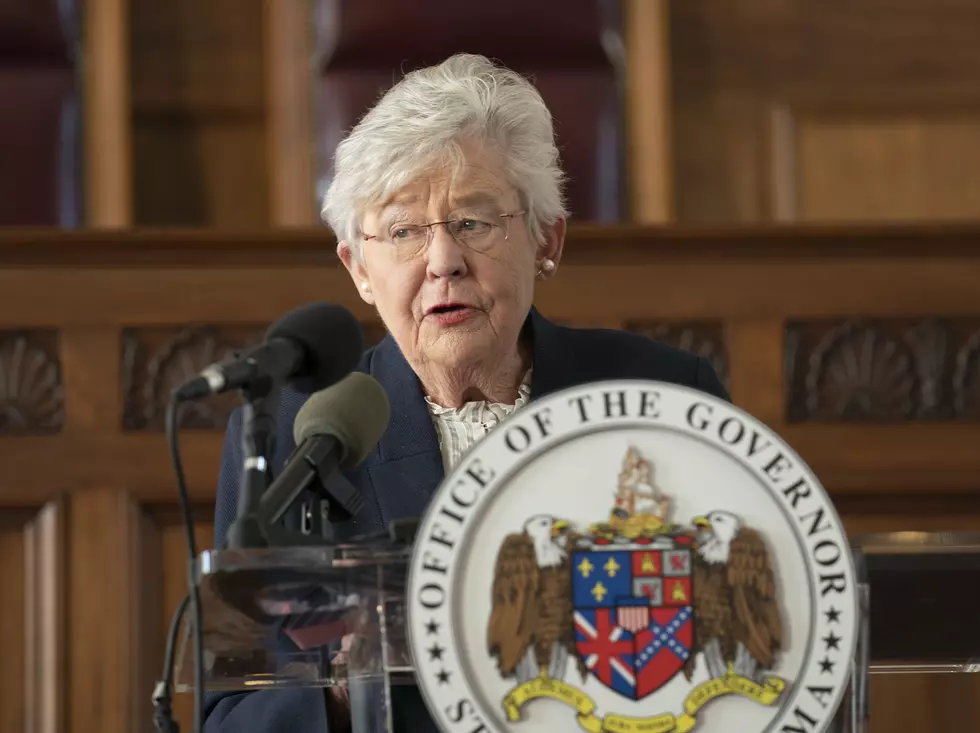
West Alabama at the Top of Governor’s Priorities
West Alabama played a significant part in Gov. Kay Ivey's roughly 35-minute State of the State Address Tuesday evening at the State Capital. Among her top priorities is education and healthcare and West Alabama plays a key role.
Combining the two, the governor promoted her plan for the state to open the Alabama School of Healthcare Sciences in Demopolis. "This new healthcare high school will offer an innovative curriculum for 9th through 12th graders, exposing them to a diversity of STEM and healthcare opportunities, as well as hands-on clinical training experiences," Ivey stated. "When these students receive their diplomas, they will be ready to fill a broad spectrum of healthcare jobs or pursue a higher education."
The program is an attempt to fill many of the shortfalls in hospital staffing across the state. It will be a live on campus school like the Alabama Math and Science in Mobile and the School of Fine Arts in Birmingham.
Funding must first be provided by the Legislature. If that is done, the plans are to locate the school behind Whitfield Regional Hospital to allow students to shadow hospital staff.
Demopolis native, Dr. Selwyn Vickers, the president and CEO of Memorial Sloan Kettering Cancer Center in New York was a guest of the governor, receiving a standing ovation from the lawmakers and guests. Ivey called Dr. Vickers an example of what a good education can accomplish.
Another West Alabama part of the governor's address came when she recognized band students from Jasper High School in Walker County for the "beautiful music" they had performed earlier.
A former teacher herself, Ivey emphasized progress made in K-12 education but added more can and should be done.
The Republican's top priority and most controversial priority for this session is creation of educational savings accounts (ESAs). They would allow parents to use taxpayer funds for private school, home school, charter schools or other educational options. "We would be helping families that may not otherwise have the option to send their children to the school of their choice," Ivey told the joint session of the house and senate. The Choose Act would make $7,000 available annually to participating parents beginning in 2025.
Greensboro Democrat Senator Bobby Singleton countered by telling reporters the state already passed Accountability legislation last year that that makes money available. But he said as long as there is, "some equality and equity" it might not be such a problem. However, he voiced concern for the students left behind. He asked what will be done for those kids?"
The ongoing program to bring broadband internet to underserved areas was highlighted as Ivey mentioned yesterday's grant funding for fiber infrastructure in West Alabama and across the state.

Ivey took pride in Alabama's low unemployment rate and investments totaling $48 billion, which has created 86,000 new jobs in the state so far during her tenure. However, she voiced concern that more than 57% of the state's population is not working. She wants to initiate workforce development reform because so many people not returning to the workforce since the pandemic.
Another priority introduced is a bill that would prohibit election ballot harvesting. "We would put a stop to any manipulation of our elections by closing loopholes that allow unaccountable, paid political operatives to pressure folks through the absentee voting process," Ivey vowed.
A senate committee will take up this legislation tomorrow and it is expected to draw significant Democrat opposition who fear criminalization of volunteer groups assisting homebound and elderly voters with absentee ballots.
Addressing law and order issues, Ivey is also backing a $100 million grant program that she claims will make schools safer.
With human trafficking a growing issue, especially along Alabama's interstate highways, Ivey put her backing behind a new "Sound of Freedom Law" that would require life sentences for person trafficking minors.
Also among her agenda items is her plan to sign an executive order to establish a task force to better understand Artificial Intelligence and to prepare the state to safely and effectively use this emerging technology going forward.
"I am not going to stand here and preach like I know a lick about AI," said Ivey. "However, I do know that new technologies can have benefits, but if not used responsibly, they can be dangerous. We are going to ensure that AI is used properly."
Many observers were watching closely to see if she would address a statewide lottery and gaming. She did, "This year, when Alabamians make their way to the ballot box, I hope they will be voting on another issue: Gaming," said Ivey. "I believe the current proposal being contemplated by the Legislature is good for Alabama, and I will be carefully watching it move through the process. It will crack down on illegal gambling, and it will responsibly regulate limited forms of legal gaming, including a statewide lottery."
Democrats voiced disappointment that Ivey spoke about the new prisons under construction but did not mention prison or judicial reform. There was also concern for the lack of attention to Medicaid expansion to help keep more rural hospitals from closing.
Gov. Ivey and her lobbying staff now have 30 meeting days within 105 calendar days to act on these and other proposals by the governor' before the session ends on June 3rd.




